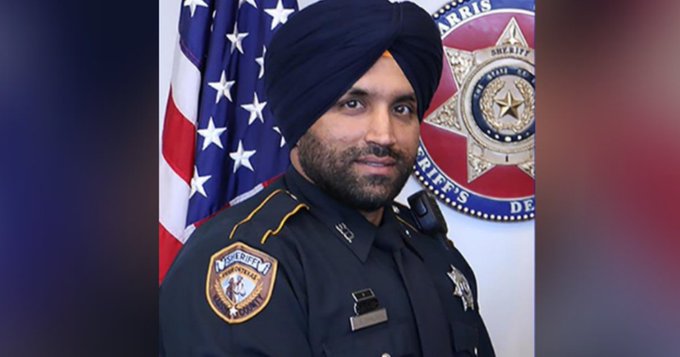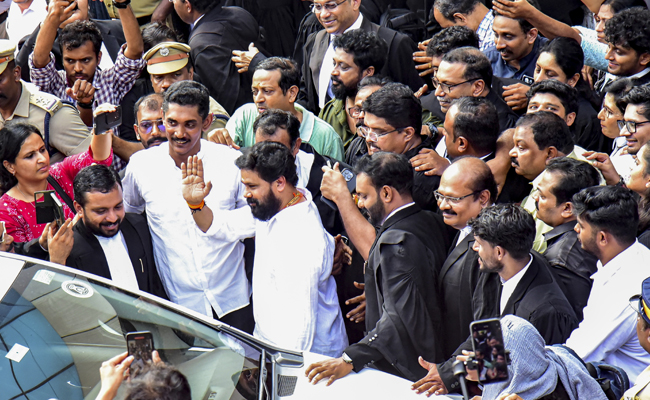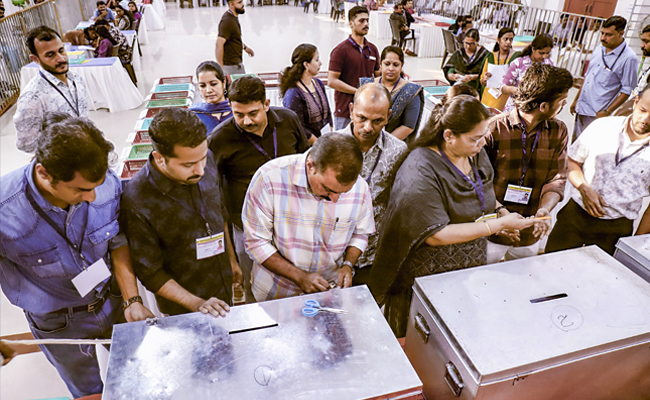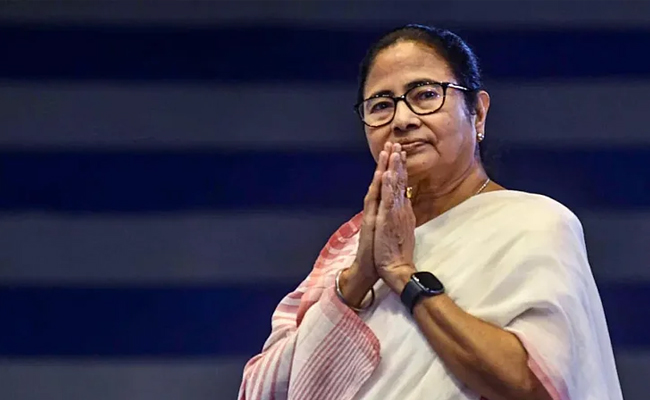Houston (PTI): Robert Solis, the man convicted of murdering Sandeep Dhaliwal, the first turbaned Indian-American Sikh police officer in the US state of Texas while making a traffic stop in 2019, has been sentenced to death, according to a police official.
The verdict was handed down by the jury, a panel made up of citizens. Solis showed no emotion as the sentence was read on Wednesday. Jurors deliberated for just 35 minutes before recommending the death penalty in the punishment phase of the trial. They deliberated for 25 minutes in the guilt phase.
“Verdict is in: Jurors sentence Robert Solis to death. We are extremely grateful that justice has been served,” Harris County Sheriff Ed Gonzalez tweeted.
Solis, 50, was convicted by the jury of the Harris County Criminal Court in Houston for the murder of 42-year-old Dhaliwal, a 10-year-veteran of the Harris County Sheriff's Office.
Dhaliwal made national headlines when he was allowed to grow a beard and wear a turban on the job. He was gunned down in an ambush-style shooting while conducting a routine mid-day traffic stop in northwest Houston on September 27, 2019.
Authorities said Dhaliwal was shot multiple times from behind after he had stopped Solis in a residential neighbourhood and was walking back to his patrol car.
"...Basically just shot him in a very ruthless, cold-blooded way," Sheriff Gonzalez had said in 2019.
Jurors saw multiple angles of the shooting and heard from 65 prosecution witnesses, who testified about a criminal history that goes back more than 30 years.
During the trial, Solis testified in his own defense and told jurors he had accidentally shot Dhaliwal.
But prosecutors argued Solis deliberately shot Dhaliwal because he didn't want to go back to jail. At the time of the traffic stop, Solis had a warrant for violating parole, CBS News reported.
During his closing argument, his last chance to address jurors, Solis merely said, "The only thing I have to say is that it's your decision to make. My life is in your hands," KTRK-TV Houston reported.
Solis asked for several delays during the trial. He told the judge he was sick, and also said he had not been given proper time to prepare.
His behaviour throughout the trial stands in direct contrast to the life and legacy of Dhaliwal, who leaves behind a wife and three children.
"Anybody I talked to, they say, 'I wish we had a Dhaliwal at this time. How many people get justice today? How many families?" Dhaliwal's older sister, Harpreet Rai was quoted as saying in the report.
"We should all aspire to be a Dhaliwal. He left such a legacy. He was a humanitarian and he helped so many beyond his work," Sheriff Ed Gonzalez said.
Just moments after Solis received the death sentence, a teenager gave a victim's impact statement, speaking directly to Solis. "You're a nobody, Robert. You're the least powerful person in this room," she told the court.
Dhaliwal worked with United Sikhs, a global humanitarian relief and advocacy nonprofit, to help organize the donation of truckloads of supplies for first responders after Hurricane Harvey.
A post office in west Houston has been renamed in his honour and Congresswoman Lizzie Fletcher, who brought the renaming legislation to the US House of Representatives, had said at the dedication ceremony, “I am honoured to play a role in commemorating Deputy Dhaliwal's remarkable life of selfless service.”
Fletcher added, “He represented the very best of our community: he worked for equality, connection, and community through his life of service to others. I was glad to work with a bipartisan delegation, our community partners, and those in the Sikh community, to pass legislation to rename this building the Deputy Sandeep Singh Dhaliwal Post Office.”
However, this wasn't the first dedication for Deputy Dhaliwal. A year after his death, a portion of Beltway 8 near Highway 249 was renamed in his honour.
Let the Truth be known. If you read VB and like VB, please be a VB Supporter and Help us deliver the Truth to one and all.
Kochi (PTI): The prosecution had "miserably" failed to prove the conspiracy charge against Dileep in the sensational 2017 actress sexual assault case, a local court has observed while citing inconsistencies and lack of sufficient evidence against the Malayalam star.
The full judgement of Ernakulam District and Principal Sessions Court Judge Honey M Varghese was released late on Friday, and has revealed the judge also pointing out at unsustainable arguments put forth by the prosecution.
"The prosecution miserably failed to prove the conspiracy between accused No.1 (Pulsar Suni) and accused No.8 (Dileep) in executing the offence against the victim," the court held.
It examined in detail, the prosecution's allegation that Dileep had hired the prime accused to sexually assault the survivor and record visuals, including close-up footage of a gold ring she was wearing, to establish her identity.
On page 1130 of the judgment, under paragraph 703, the court framed the issue as whether the prosecution's contention that NS Sunil (Pulsar Suni) recorded visuals of the gold ring worn by the victim at the time of the occurrence, so as to clearly disclose her identity, was sustainable.
The prosecution contended Dileep and Suni had planned the recording so that the actress' identity would be unmistakable, with the video of the gold ring intended to convince Dileep that the visuals were genuine.
However, the court noted that this contention was not stated in the first charge sheet and was introduced only in the second one.
As part of this claim, a gold ring was seized after the victim produced it before the police.
The court observed that multiple statements of the victim were recorded from February 18, 2017, following the incident, and that she first raised allegations against Dileep only on June 3, 2017.
Even on that day, nothing was mentioned about filming of the ring as claimed by the prosecution, the court said.
The prosecution failed to explain why the victim did not disclose this fact at the earliest available opportunities.
It further noted that although the victim had viewed the sexual assault visuals twice, she did not mention any specific recording of the gold ring on those occasions, which remained unexplained.
The court also examined the approvers' statements.
One approver told the magistrate that Dileep had instructed Pulsar Suni to record the victim's wedding ring.
The court observed that no such wedding ring was available with her at that time.
During the trial, the approver changed his version, the court said.
The Special Public Prosecutor put a leading question to the approver on whether Dileep had instructed the recording of the ring, after which he deposed that the instruction was to record it to prove the victim's identity.
The court observed that the approver changed his account to corroborate the victim's evidence.
When the same question was put to another approver, he repeated the claim during the trial but admitted he had never stated this fact before the investigating officer.
The court noted that the second approver even went to the extent of claiming Dileep had instructed the execution of the crime as the victim's engagement was over.
This showed that the evidence of the second approver regarding the shooting of the ring was untrue, as her engagement had taken place after the crime.
The court further observed that the visuals themselves clearly revealed the victim's identity and that there was no need to capture images of the ring to establish identity.
In paragraph 887, the court examined the alleged motive behind the crime and noted that in the first charge sheet, the prosecution had claimed that accused persons 1 to 6 had kidnapped the victim with the common intention of capturing nude visuals to extort money by threatening to circulate them and there was no mention about Dileep's role in it.
The court also rejected the prosecution's claim that the accused had been planning the assault on Dileep's instructions since 2013, noting that the allegation was not supported by reliable evidence.
It similarly ruled out the claim that Suni attempted to sexually assault the victim in Goa in January 2017, stating that witness statements showed no such misconduct when he served as the driver of the vehicle used by the actress there.
The court also discussed various controversies that followed Dileep's arrest and the evidence relied upon by the prosecution, ultimately finding that the case had not been proved.
Pronouning its verdict on the sensational case on December 8, the court acquitted Dileep and three others.
Later, the court sentenced six accused, including the prime accused Suni, to 20 years' rigorous imprisonment.
The assault on the multilingual actress, after the accused allegedly forced their way into her car and held it under their control for two hours on February 17, 2017, had shocked Kerala.
Pulsar Suni sexually assaulted the actress and video recorded the act with the help of the other convicted persons in the moving car.





